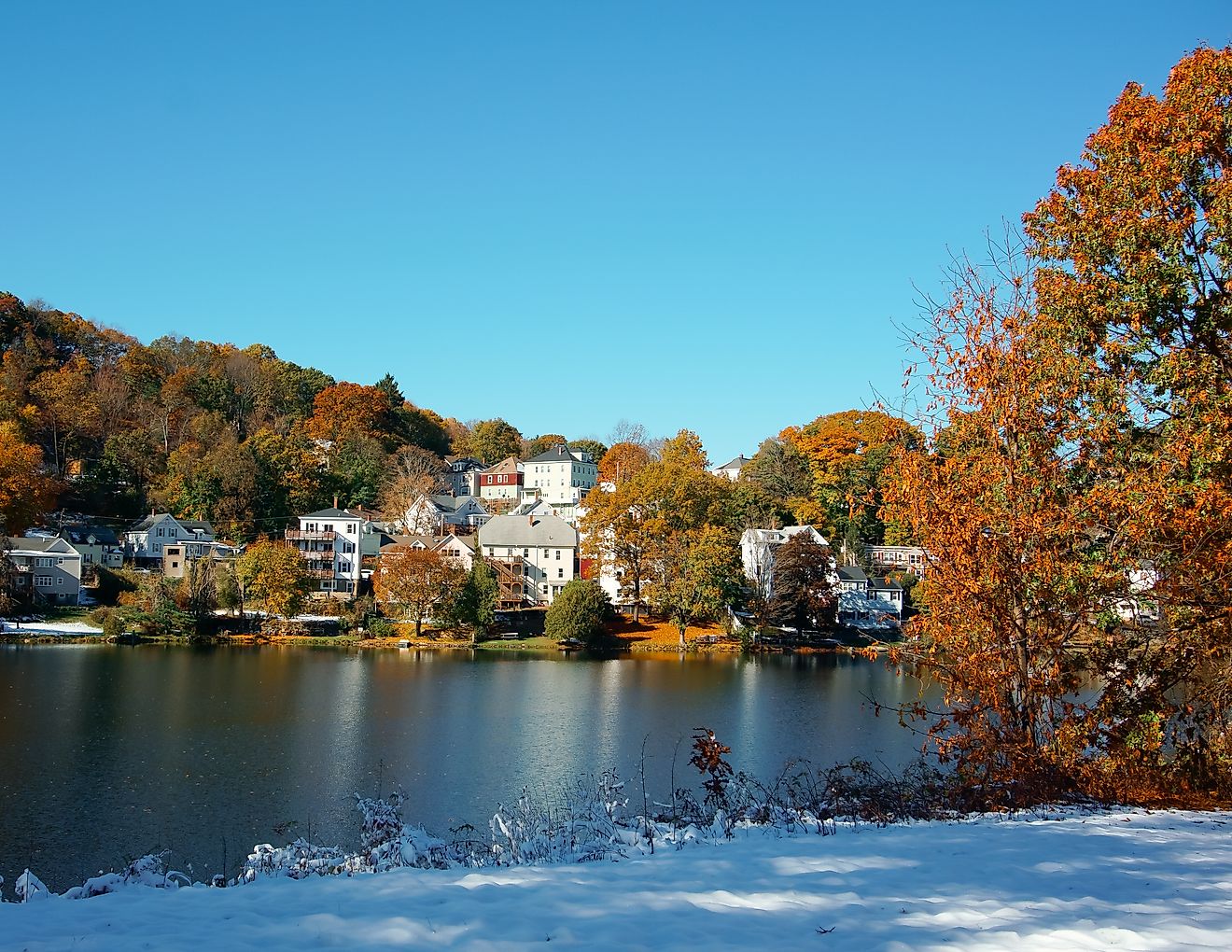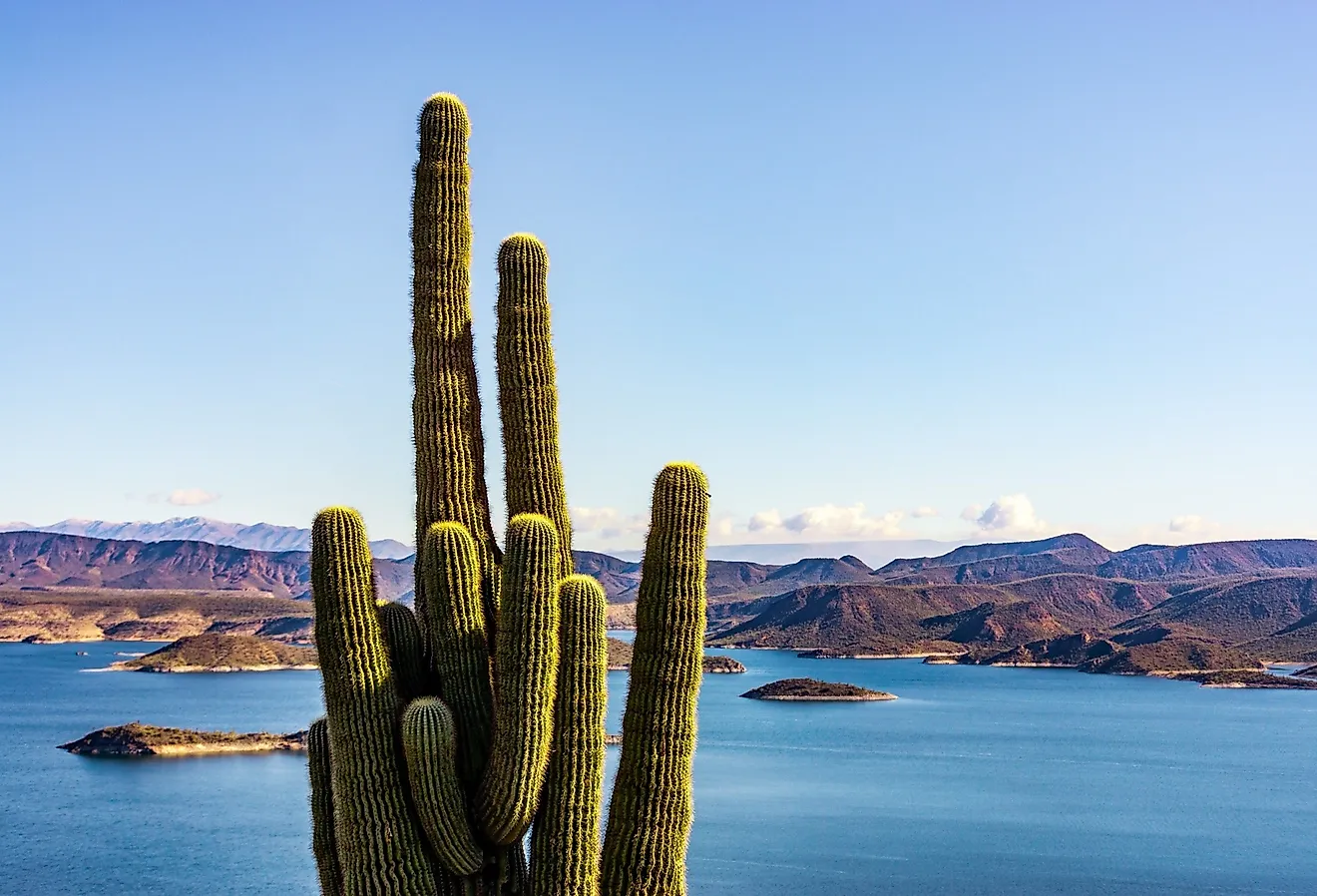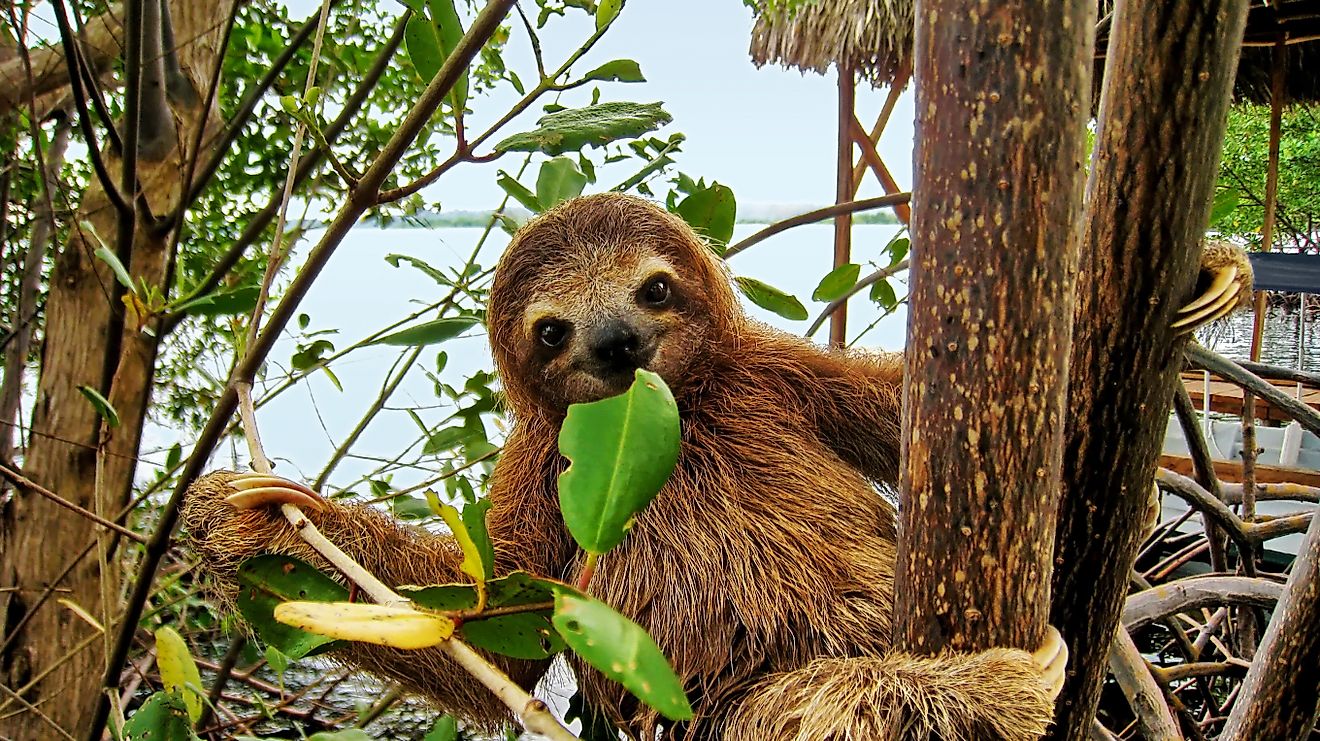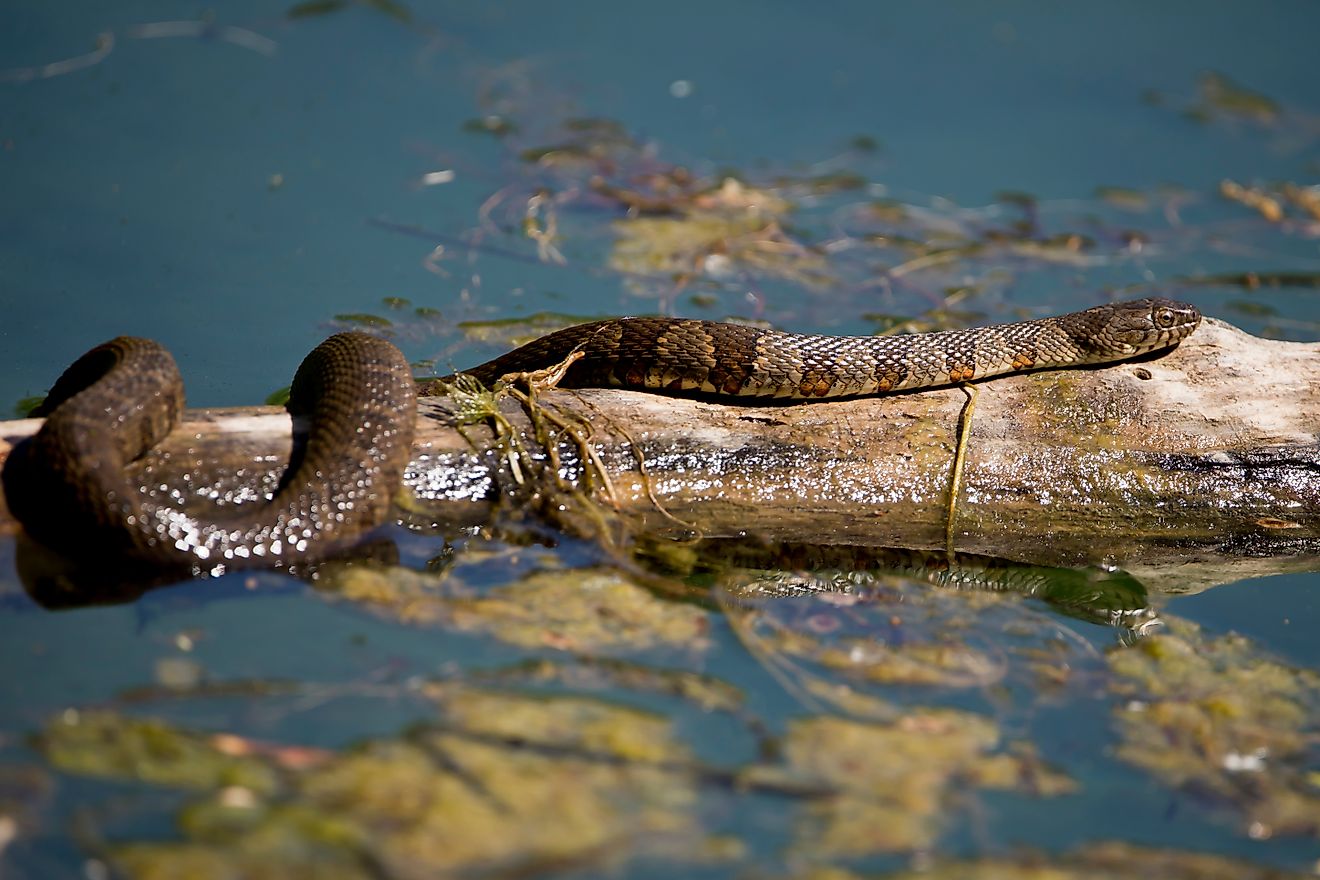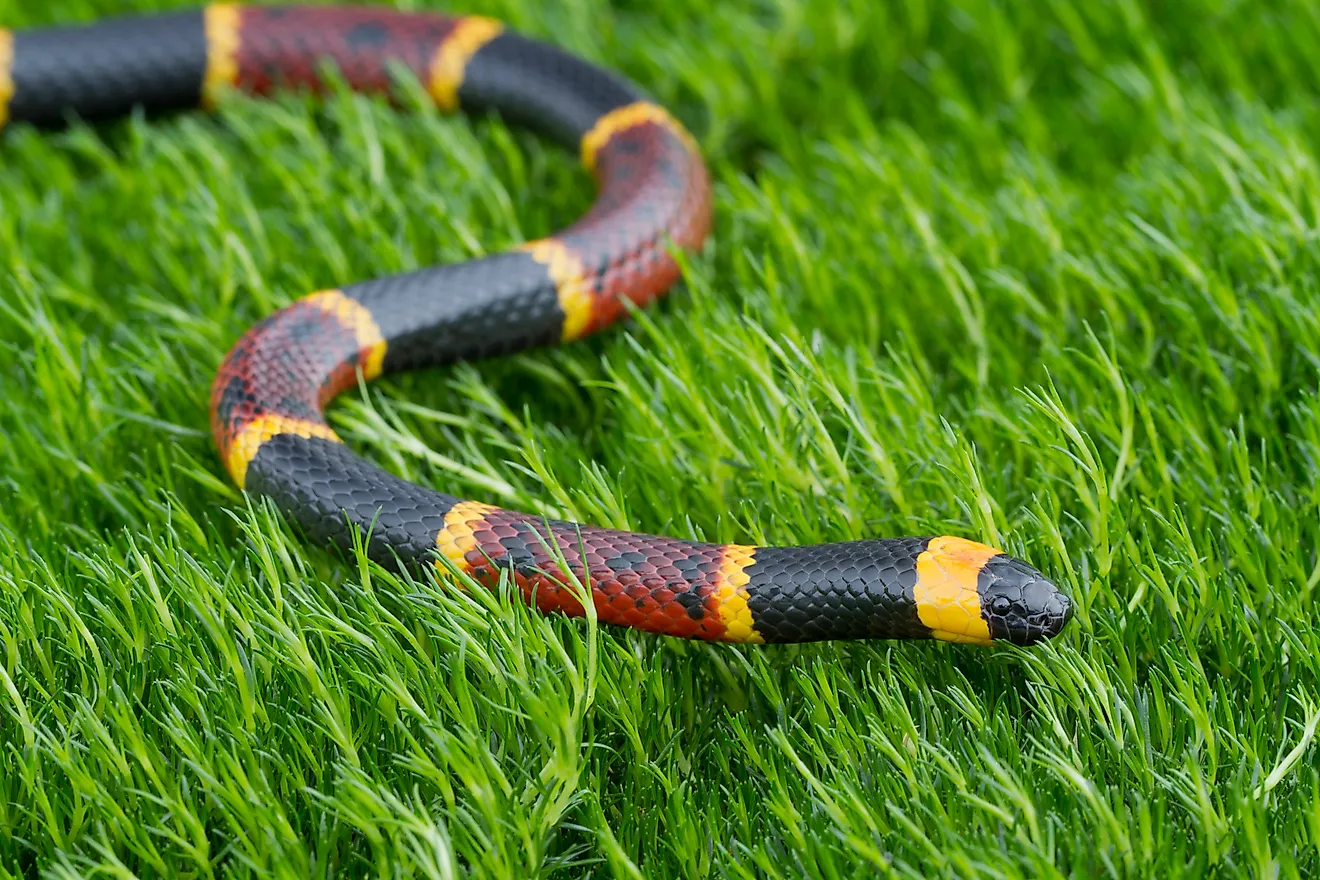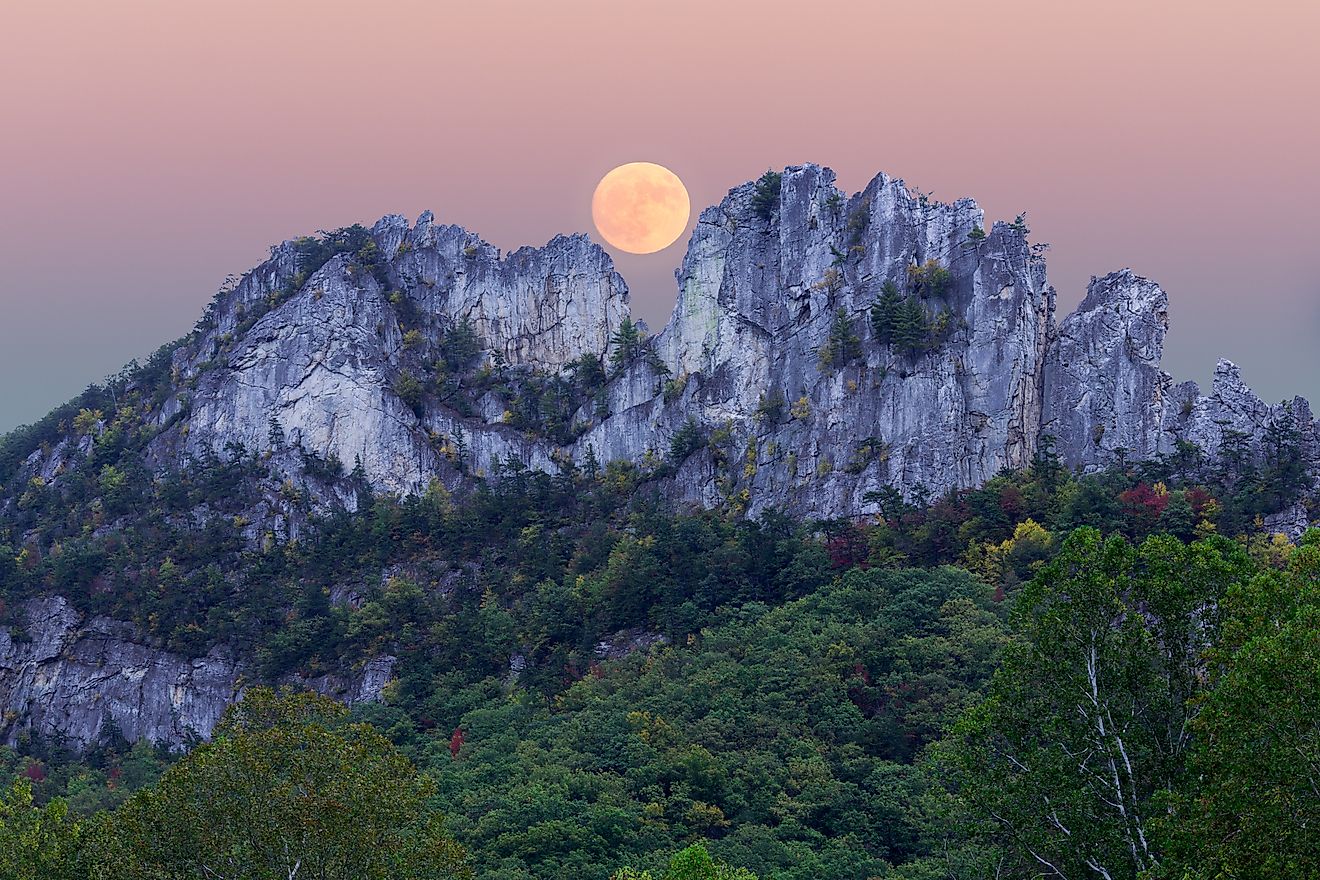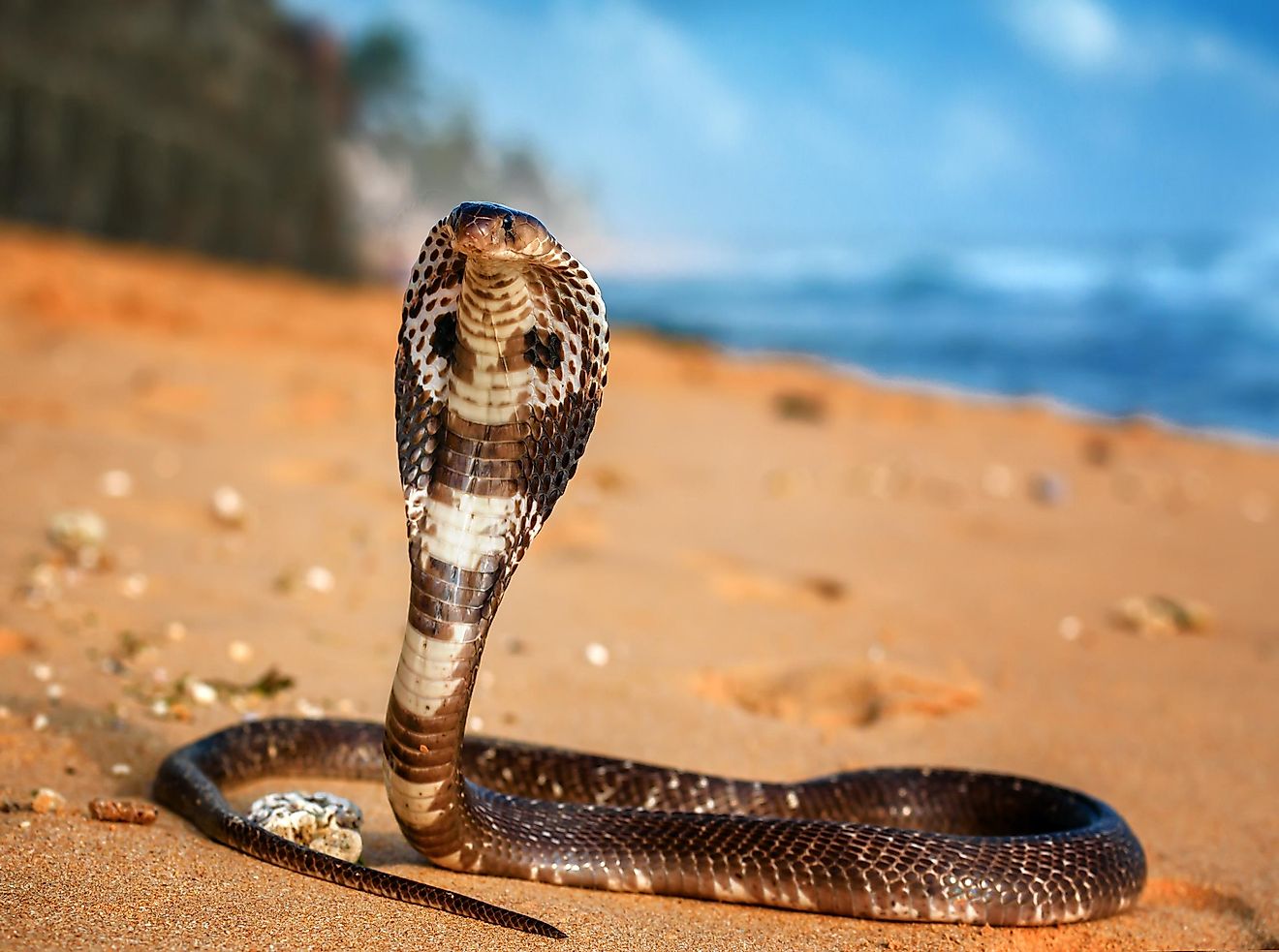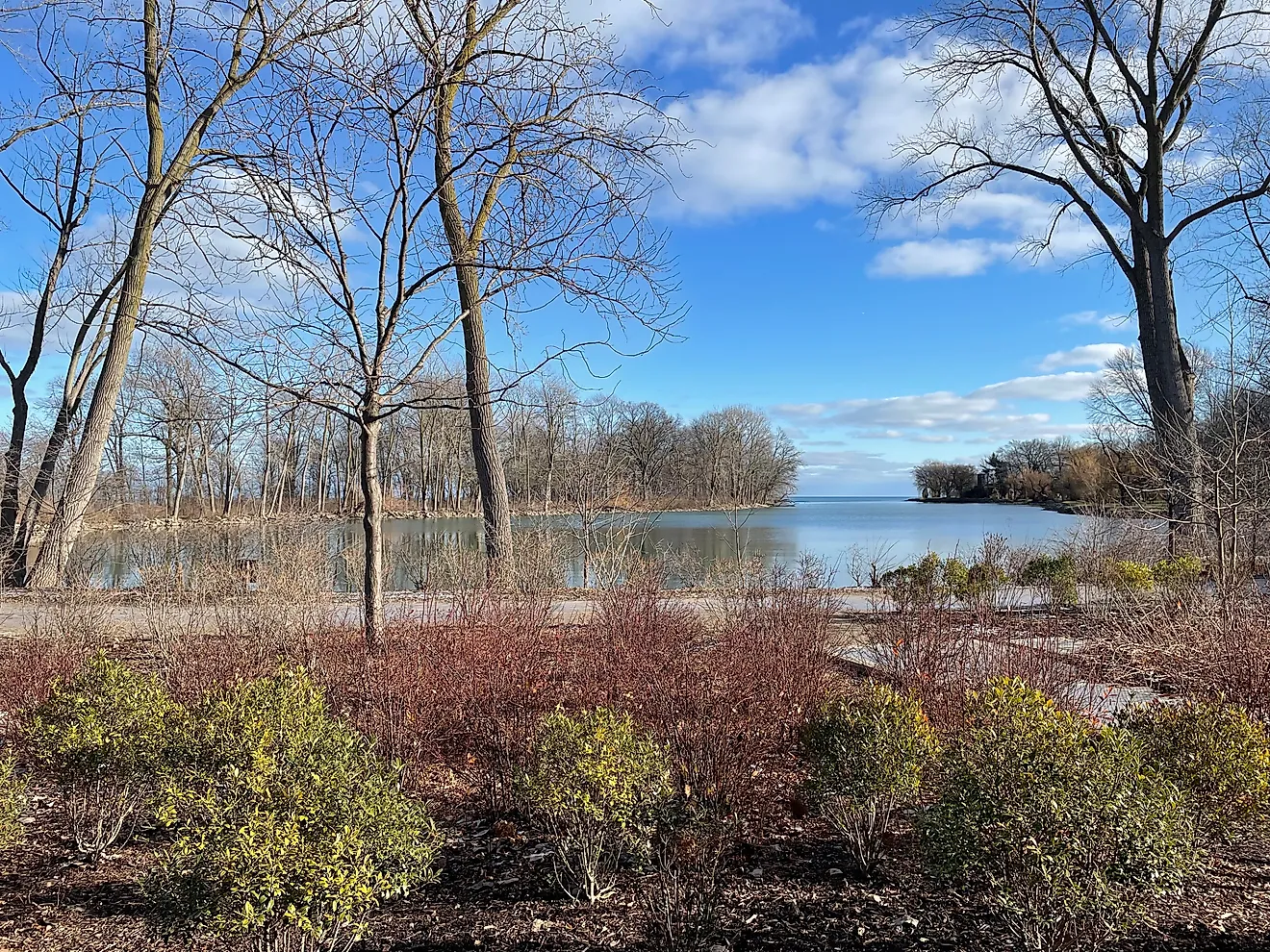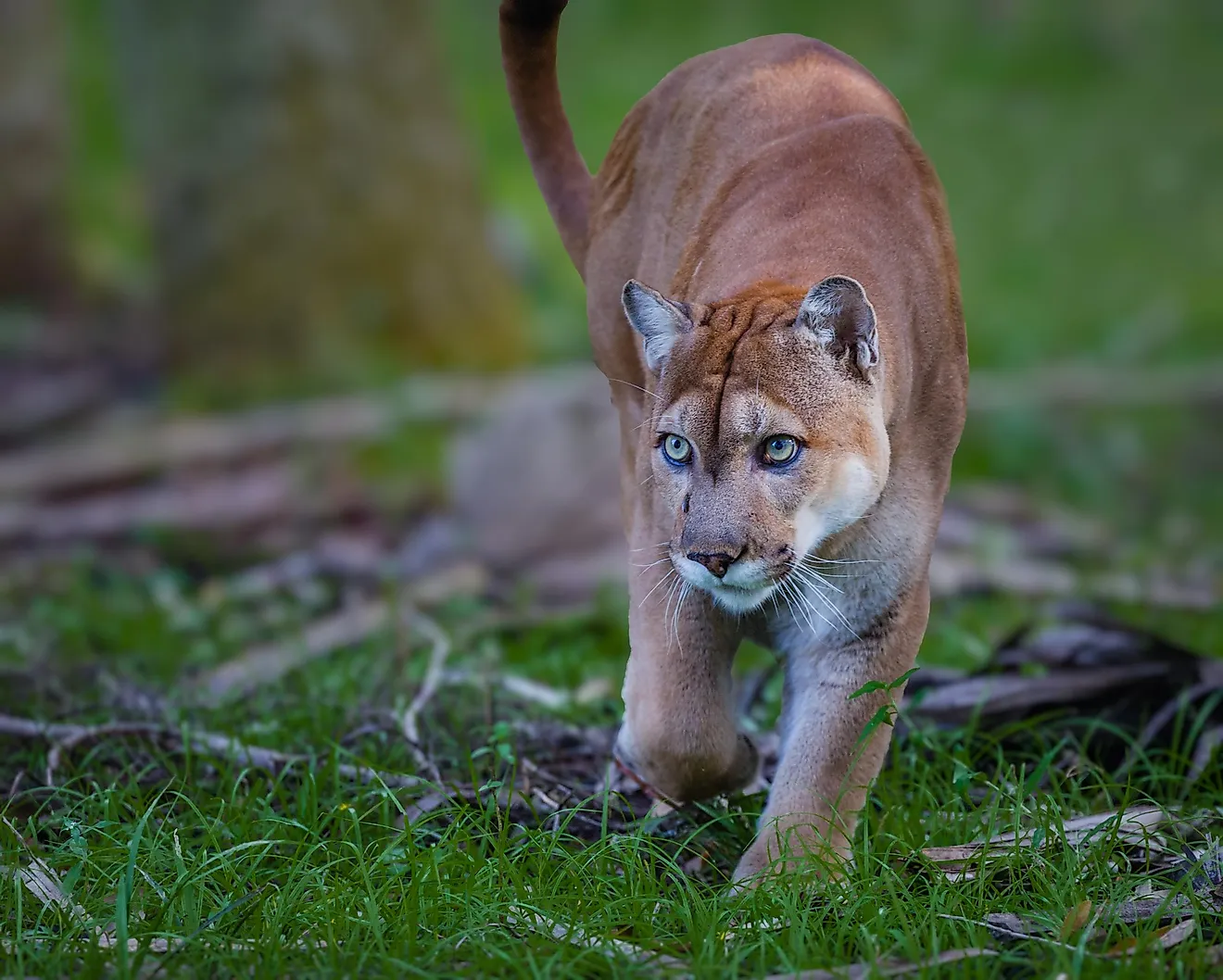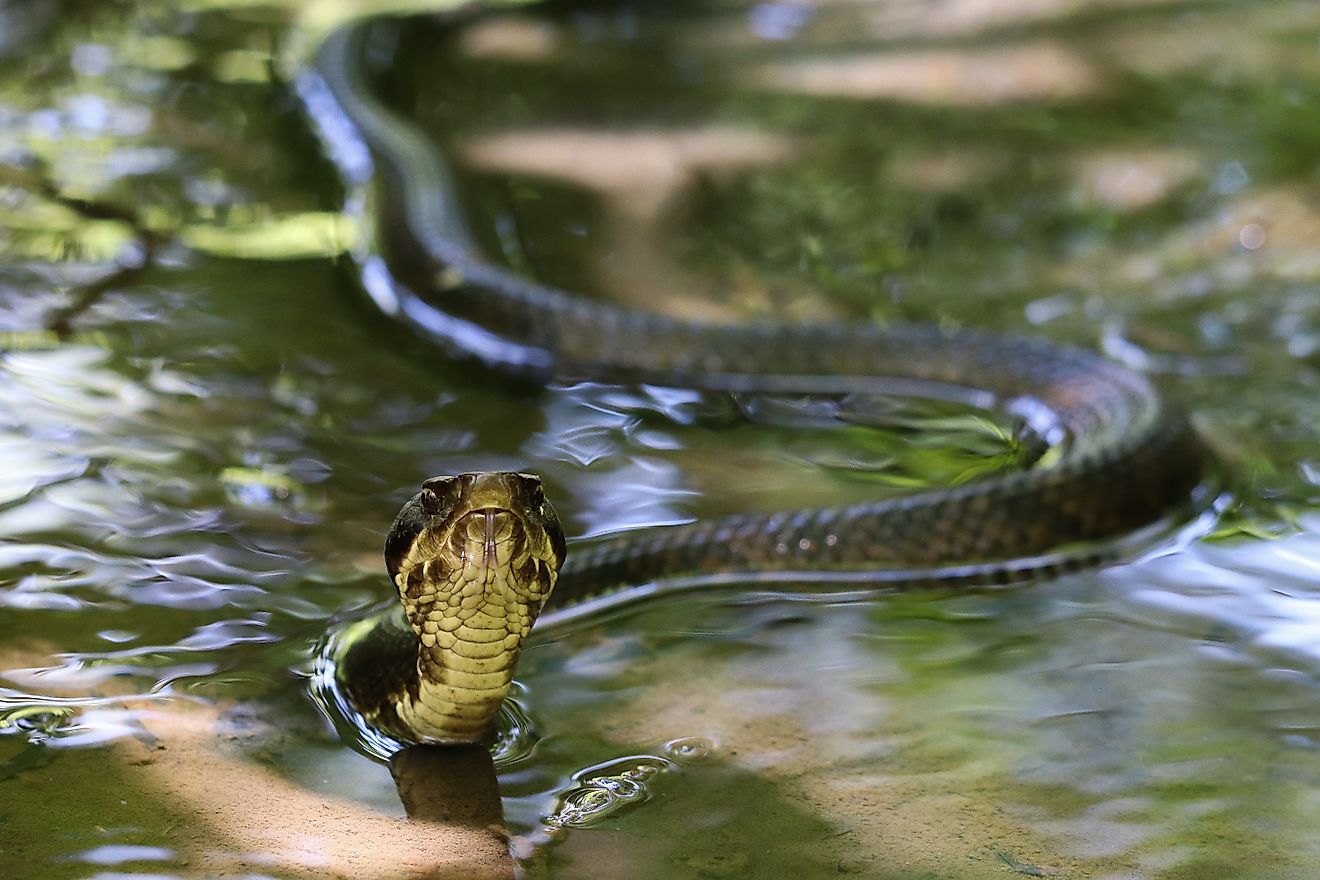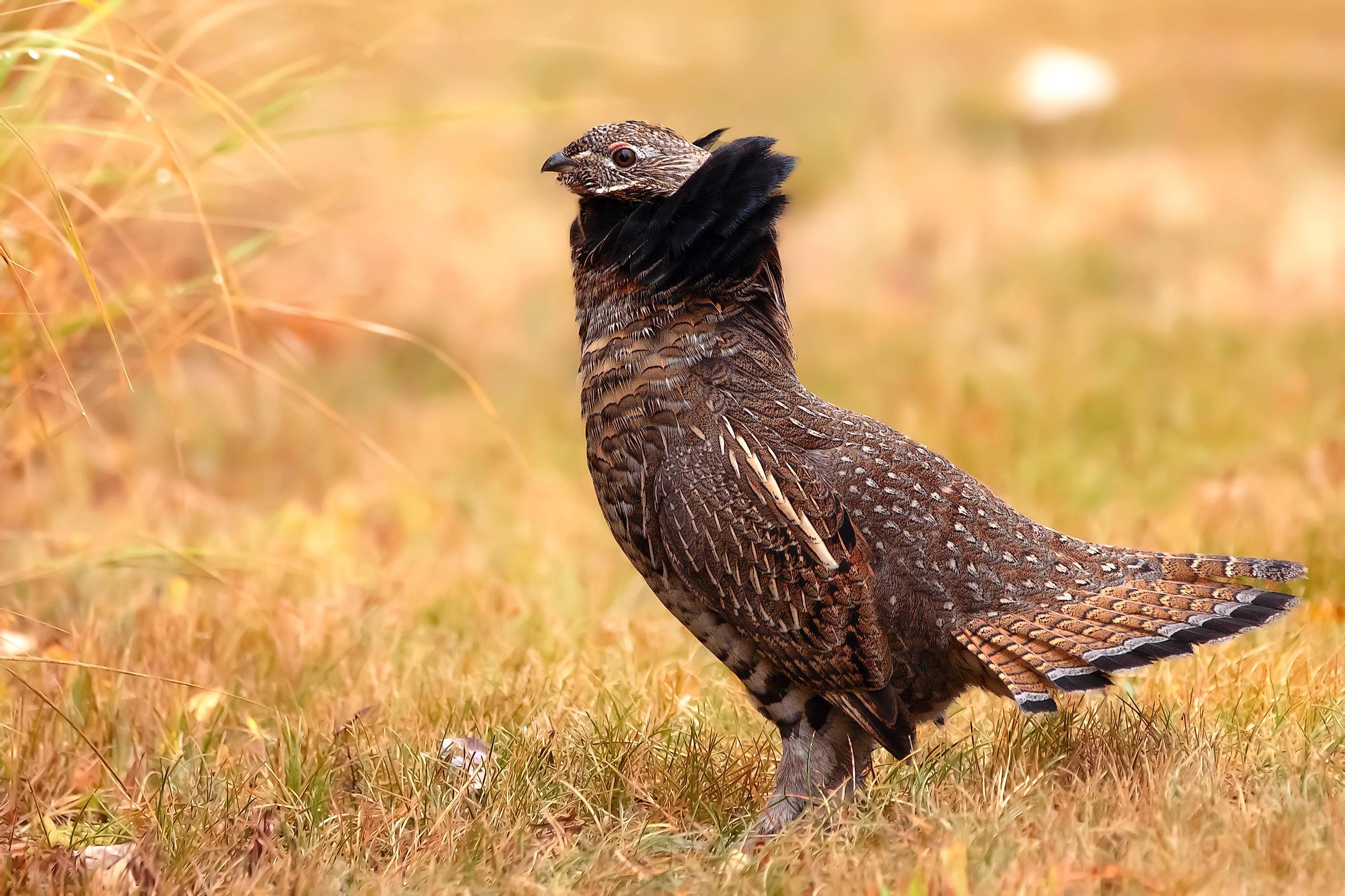
The 12 Most Beautiful Wild Animals In Pennsylvania
The natural world harbors an immense variety of shapes, sizes, and hues that delight our eyes and capture our imaginations. From colorful blossoms to intricately patterned wings, beauty can be found across nature's vast creative offerings. Pennsylvania's landscape is home to many exquisite wild animals with distinctive features showcasing unparalleled beauty formed through years of evolution.
This article explores some of the most beautiful creatures inhabiting the Keystone State's forests, fields, and waterways. We will delve into the physical attributes that contribute to their good looks, from opulent coats to specialized structures. Besides the aesthetic appeal, the ecological and cultural roles of these animals will also come into play. Whether admired for their coy demeanor or simplistic elegance, each of the most beautiful wild animals in Pennsylvania is an example of the unique artistry of the natural world.
Red Fox
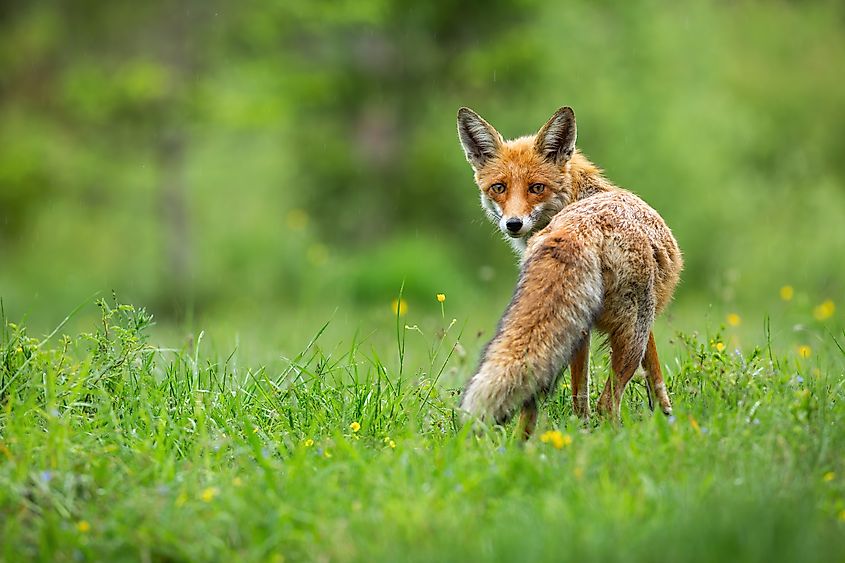
The red fox (Vulpes vulpes) is a small and agile carnivore occurring in the rolling farms and wooded regions of Pennsylvania. It stands out for its unique reddish-orange coloration with a gray-white hue running down the underside. The small, triangular head with expressive eyes, large ears, and bushy tail makes the red fox one of the prettiest sights in the Pennsylvania wilderness. Their elusive nature underscores the beauty of coming across one on the trail. Those who are lucky enough to spot one in the wild always take advantage of the photo opportunity to capture the red fox in its element, producing some of the best wildlife snaps out there.
In many cultures, the red fox is a status symbol for endurance, wisdom, and fertility, and encountering one in the wild is considered good luck. However, the animals are also known to be cunning, with the ability to outsmart prey and predators alike. As cute and charismatic as they may appear, the red fox is mostly beautiful from afar; you shouldn't risk getting too close!
White-Tailed Deer
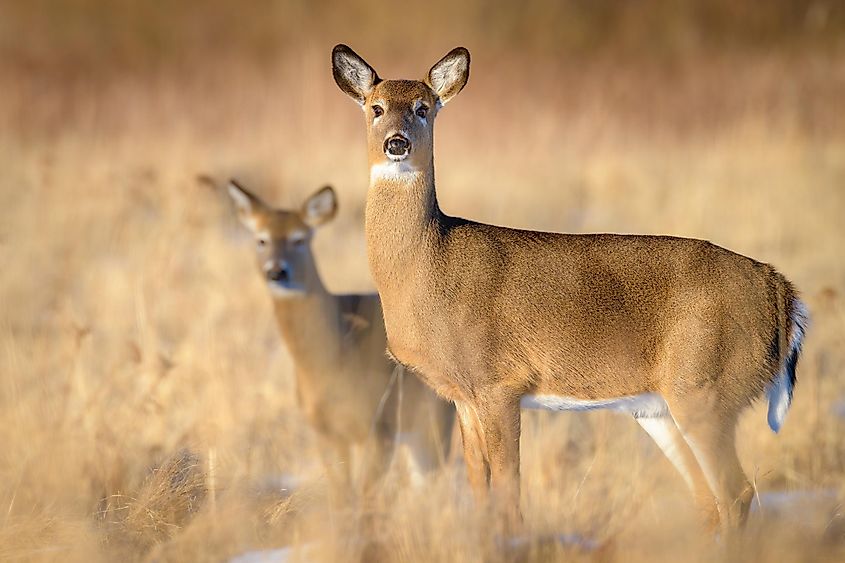
The white-tailed deer (Odocoileus virginianus) is a graceful and elegant animal that dominates the wildernesses of Pennsylvania. They have a lovely tan or brown coat that changes to grayish-brown in winter, with patches of white on the throat, ears, around the eyes, and stomach, with the standout feature being the white on the underside of the tail. Adult males (bucks) look even more impressive with their uniquely shaped and symmetrical antlers, which can be intimidating but still exquisite to look at.
People love the white-tailed deer for its calm disposition, which shines through its expressive eyes. They barely pose a threat, unless it's the mating season, and their prevalence makes them a common sight for adventurers. The whitetail is considered by Pennsylvanians to represent nobility, endurance, intelligence, and character, and it was rightfully chosen as the state animal. In many Native American cultures, it was believed that encountering the animal would bring good fortune.
Bald Eagle
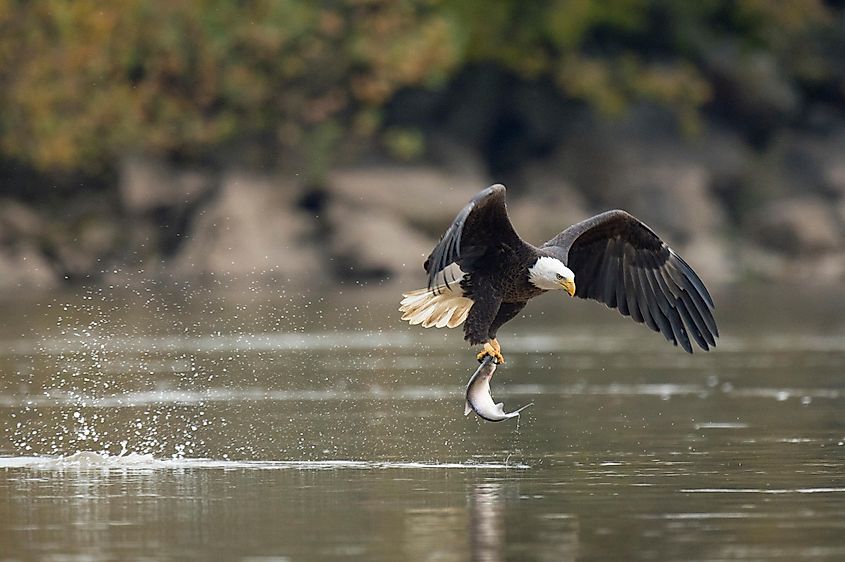
The bald eagle (Haliaeetus leucocephalus) is easily the most recognizable bird in North America. Their beauty comes from an overall badass nature: extremely regal and highly efficient hunters. These remarkable birds of prey grow a height of 38 inches, with a wingspan of between 5 to 8 feet. They are distinguished by their white heads and shoulders, which contrast their dark-brown bodies. Expressive bright yellow eyes, a powerful, hooked yellow bill, and massive talons give the bald eagle the tools to be an apex predator in Pennsylvania's backcountry.
The bald eagle is a work of art when it's in the air and people can't help but snap away whenever they catch a glimpse of one. It is an iconic symbol of the United States, representing courage, strength, and wisdom, and appears in various official documents, from passports and dollar bills to government seals. Culturally, Native Americans saw the bald eagle as an emblem of the bravest, highest, and holiest, offering its features as a sign of honor.
Ruffed Grouse
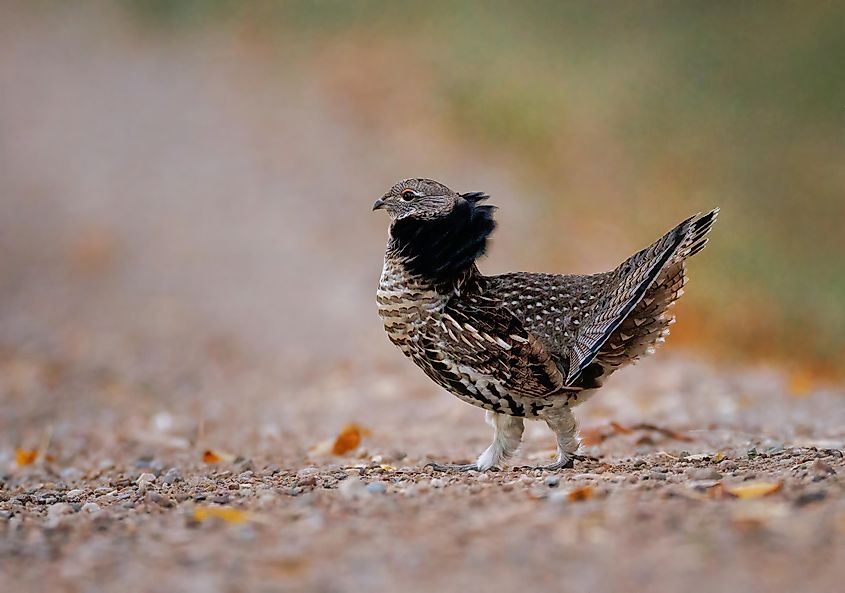
The ruffed grouse (Bonasa umbellus) was chosen as Pennsylvania's official state bird in 1931 and continues to represent the state as a symbol of beauty. Admired by wildlife viewers, it stands out with an intricate pattern of dark spots and bars over a reddish-brown background. During the mating season, males show off the ruff of features around the neck in a fascinating display to woo the females. Besides earning a partner from their effort, they also get many human admirers who can't keep their hands off the camera.
Bird watchers are always looking to spot the ruffed grouse in Pennsylvania's forests, and their elegant disposition makes them a popular subject for wildlife photographers. In North America, the bird is a symbol of intuition, wisdom, and the female principle. Native American tribes wore their feathers on caps to signify healing and strength.
Black Bear
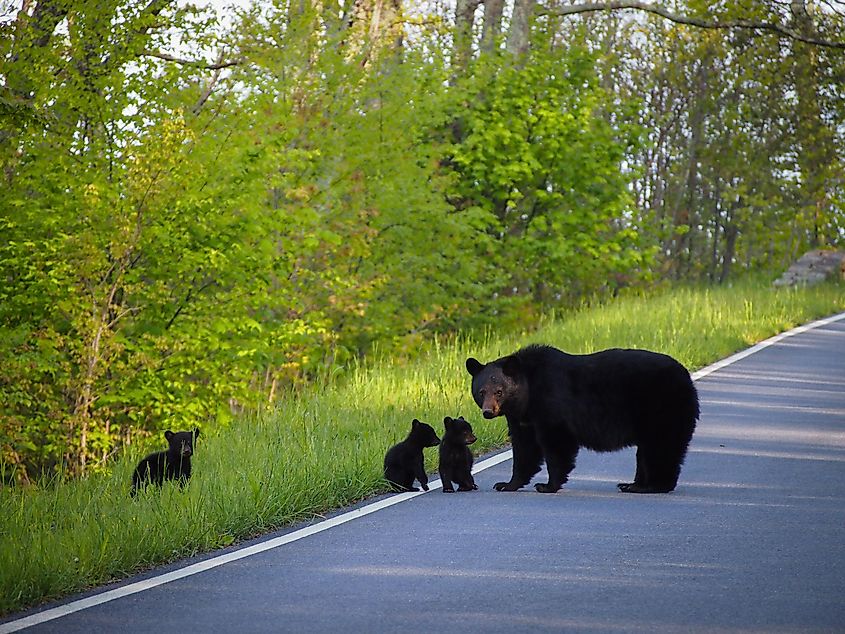
Black bears (Usus americanu) dominate much of North America, choosing to inhabit the wooded forests of Pennsylvania. Growing up to 80 inches from head to tail and weighing up to 400 pounds, they are among the largest wild animals in Pennsylvania. Black bears have a beautiful and thick coat of fur covering their entire body, with a tiny white patch around the chest area. They have a muscular body with a rounded face, ears, small eyes, and a slight tan around the muzzle, making them a popular target for photographers.
Despite their intimidating size, these animals are shy and elusive around humans, sending the notion of being a gentle giant; but they are not. When cornered and feeling threatened, they can be quite aggressive and dangerous. Historically, these beats played an important role among indigenous tribes in North America as a source of food, hides, and fat. Their culture also considered them a symbol of hard work, strength, and love.
American Porcupine
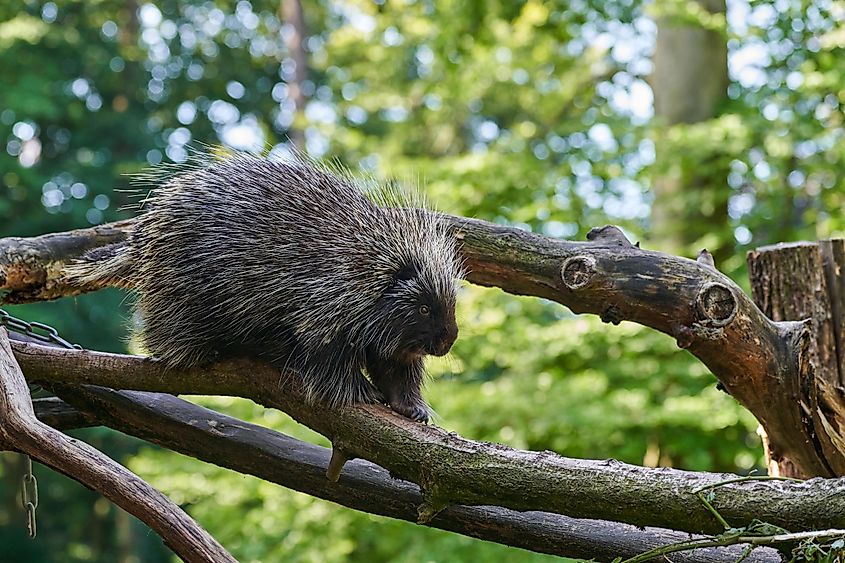
After the capybara and beaver, the American porcupine (Erethizon dorsatum) is the world's third largest rodent. This quilled animal is famous among internet users for its popular pumpkin-eating videos. Porcupines can grow 40 inches long and weigh up to 20 pounds, with brownish-yellow fur around the body. They are known for their unique defense system, which features up to 30,000 quills that lie flat on the body. When threatened, the porcupine stretches its skin and erects the quills, exposing barbed tips to ward off the aggressor.
Despite being an apparent threat when agitated, porcupines are relatively docile and gentle creatures, capable of living in perfect harmony with other animals and humans. Their unique appearance and friendly personality make them appealing to humans, who may want to pet them. Most Naïve American cultures associate the porcupine with being cautious. For instance, the Hopi consider it a symbol of humility and modesty.
River Otters
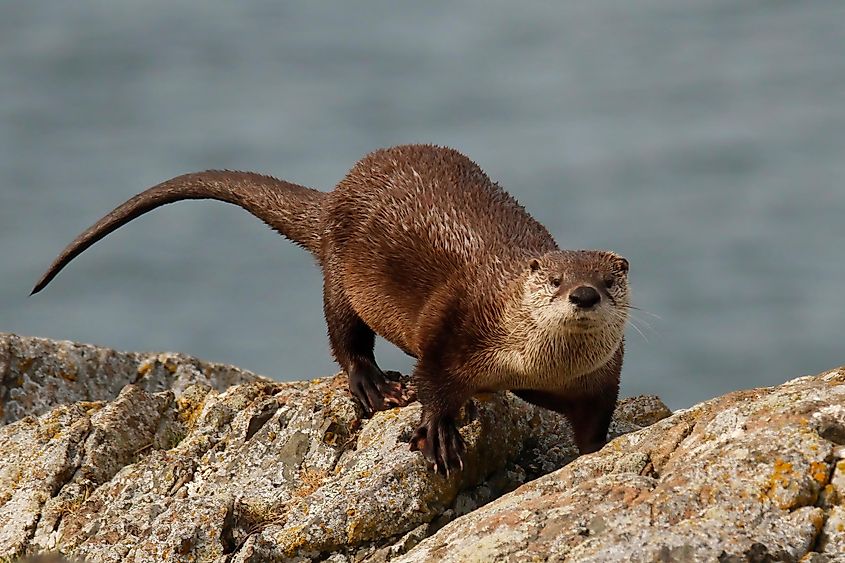
River otters (Lontra canadensis) occur in all the major river systems in Pennsylvania, choosing to inhabit clean water that supports fish and other aquatic creatures making up their diet. With their slender and unusually lengthy bodies and short legs with webbed feet, otters have a unique appearance that intrigues most people. They are covered in a lush coat of dark fur and demonstrate a playful personality, gliding in the water with extreme agility and elegance, which makes you want to pet and cuddle them.
River otters live alone or in pairs but they are social animals that can often be seen playing together and having fun. This charming and humorous nature has made them an emblem of natural splendor across Pennsylvania's landscapes. Some Native American cultures revered the otter as a symbol of playfulness, joy, and adaptability and consider it a spirit guide that leads you to find joy amidst life's challenges.
Bobcat
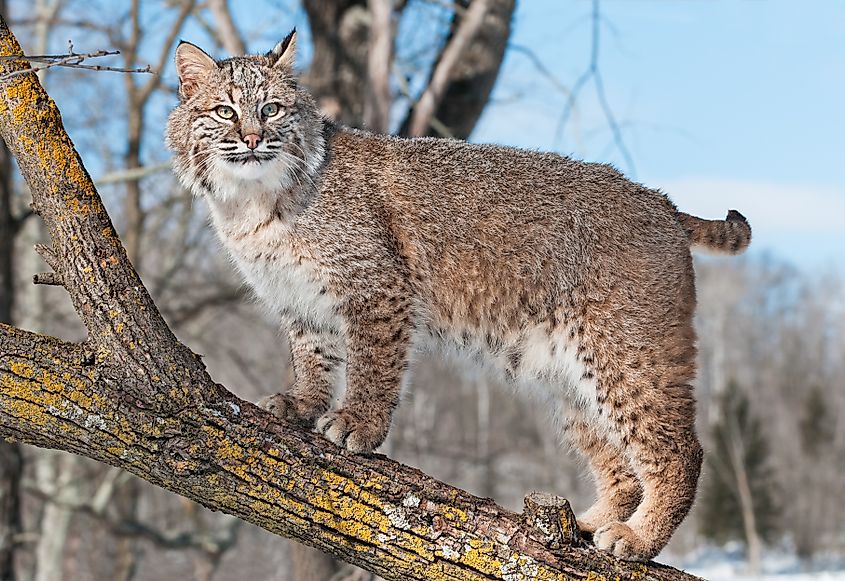
Bobcats (Lynx rufus), also called red lynx, thrive in diverse habitats across Pennsylvania, from swamps and mountains to suburban and agricultural areas. They possess a rugged beauty and mystique charm that earns them a lot of admirers. Their bodies are compact and muscular, covered in a thick, golden-brown coat with black bars. They also stand out for their distinctive tufted ears, facial markings, and short tails. Many people have a soft spot for bobcats because they tend to remind them of their pets at home, only bigger and cuddlier.
Despite being shy and elusive, they demonstrate their power and agility in their precision when hunting small rodents, birds, and rabbits. In Native American culture, bobcats are a spiritual representation of independent yet family-centered beings. They are a symbol of survival, courage, and adaptability in adverse circumstances.
Monarch Butterfly
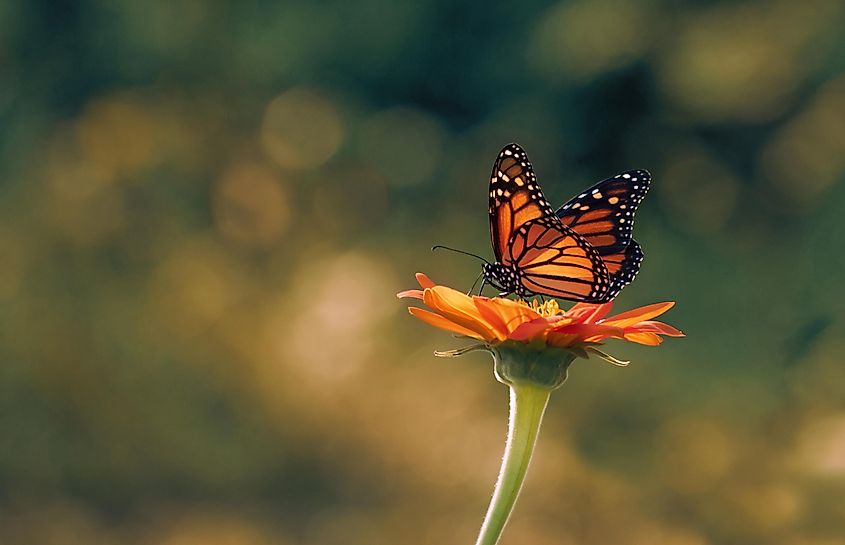
Monarch butterflies (Danaus plexippus) are common in the state in May, arriving to breed in summer before leaving for Mexico in the fall. The bright orange and black wings are a sight to behold as they glide gracefully in the air. This conspicuous coloration may be meant as a warning to predators but it also makes them easy to spot from a distance. As they make their fall migration southwards, many people come out to admire the spectacle as they transform the atmosphere into a kaleidoscope of orange and black.
As precious and fragile as they may look, monarchs are a demonstration of navigational prowess and resilience, as seen in their annual journey of 1,000 miles. The forest communities occupying central Mexico believe these graceful creatures to be their ancestors' souls. Monarchs are seen as carriers of the souls belonging to friends and relatives, who visit the living for just one night and this is marked by celebrating the Day of the Dead.
Eastern Screech-Owl
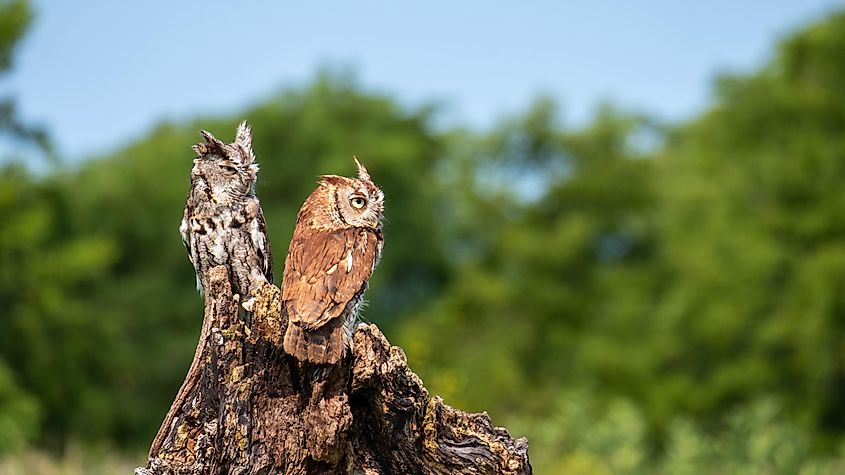
Eight different species of owl nest or visit Pennsylvania, but the Eastern Screech-owl (Megascops asio) is a permanent resident. Their small stature, soft grey and rusty colored feathers marked with spots and stripes showcase subtle beauty, especially when camouflaging in the forest branches. The Eastern screech-owl is a nocturnal bird of prey that earns its name from the ear-piercing screeches that reverberate in the dead of night. Their oversized yellow eyes allow them to hunt with precision at night, and observing them in their element is a surreal experience.
In some folklore, these creatures of the night represented psychedelic beings and the mysteries of the dark. Native Americans tied the owl to insight and enlightenment and considered its hoot a call to introspect and find yourself from within.
Northern Cardinal
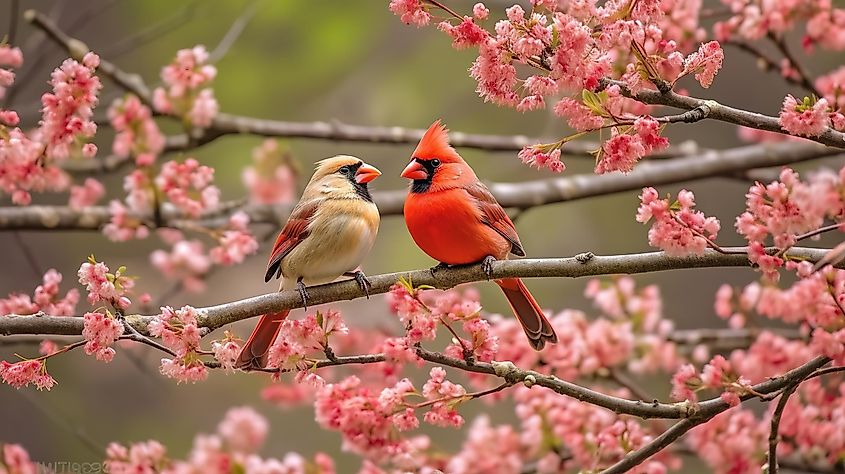
Northern cardinals (Cardinalis cardinalis) are a common sight in the heavily forested areas of Pennsylvania, including the Allegheny High Plateau. Immortalized by the "Angry Birds" animated movies and popular mobile games, Northern cardinals are unique for their crimson feathers and contrasting black facial markings. Besides their striking appearance, they are recognizable by their melodious songs, mostly expressed during mating season. These adorable birds demonstrate an impressive spirit of nurturing by raising chicks through changing seasons, increasing their likability among wildlife enthusiasts.
The fact that the northern cardinal is the official state bird of seven different American states goes to show how much they are revered across the country. Due to their bright colors maintained year-round, they became symbols of wilderness survival, hope, and renewal for Native Americans.
Wild Turkey
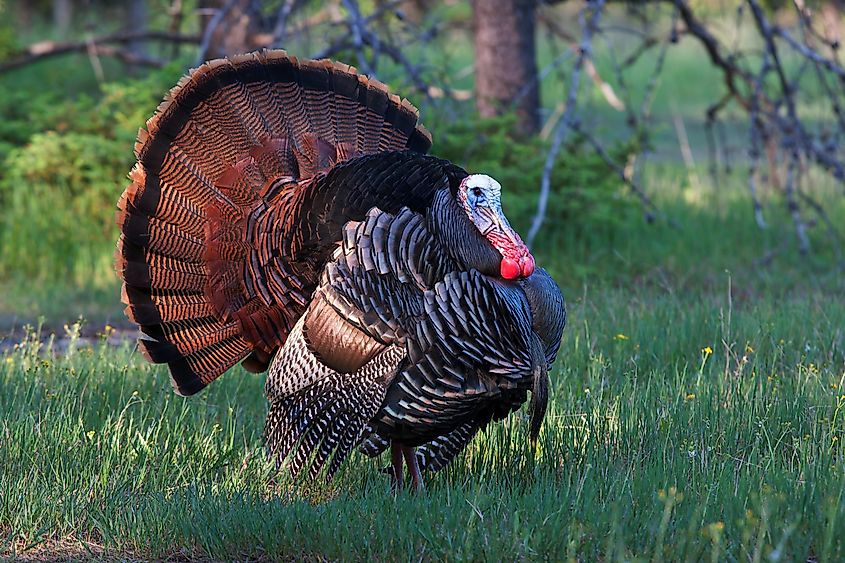
With its array of dazzling feathers, unique brown, black, and copper plumage, and impressive breeding displays, the wild turkey (Meleagris gallopavo) is a truly striking bird. Males, known as toms, puff out their features to woo females during courtship, showing off colors shimmering in greens, blues, and purples. Wild turkeys are highly social and form flocks, using complex vocalizations and visual signals to communicate.
To Native Americans, the wild turkey held great cultural significance as a symbol of strength, courage, and survival. It was an integral source of food and its feathers were used for spiritual purposes. Despite near extinction, successful conservation efforts have allowed wild turkey numbers to rebound across Pennsylvania. Their recovery represents the power of protection and stewardship of the natural world. Today, sightings of a flock continue to elicit wonder.
Final Thoughts
The Pennsylvania wilderness charms nature lovers and wildlife lovers with an eclectic mix of flora and fauna. From delicate wildflowers to majestic raptors, the Keystone State boasts astonishing biodiversity. These beautiful wild animals in Pennsylvania showcase are just a sample of the endless natural beauty that has long endured in this region. Whether admired for grace, coloration, song, or intimate ties to cultural heritage, each creature demonstrates the relentless wonder of evolution and adaptation. Their enduring presence serves as a reminder of humankind's responsibility as guardians of the lands and waters we all call home.
